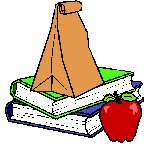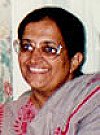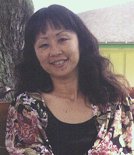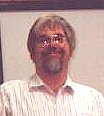Friends,
I am looking again at the agenda pages for our week together in Hawaii and
I see where I made a Freudian slip. I probably have made more than one!
On Wednesday's intro I wrote that we wait for "test scores to sore."
Oh boy.. it is testing week here in Maryland for 5th graders and we hope
the scores don't make us sore.
 How can we measure the fruit of our online activities? How can we measure
the fact that kids come to a computer lab to *write* on their own time?
We can't put a number on that. Even if their social studies grade didn't
increase this semester does it count that they know where Iceland is and
the fact that their friends there go to school in the dark in the winter
and go home from school in the dark?
How can we measure the fruit of our online activities? How can we measure
the fact that kids come to a computer lab to *write* on their own time?
We can't put a number on that. Even if their social studies grade didn't
increase this semester does it count that they know where Iceland is and
the fact that their friends there go to school in the dark in the winter
and go home from school in the dark?
Numbers. Numbers on tests prove that the kids have learned.
What are your thoughts...?
 Mahenaz:
I really have to just imagine this situation, since I have little or no
experience of
children working at computers, leave alone on-line. And I can imagine
the joy , wonder and excitement of on- line discovery...Iceland...coming
and going to school in the dark.. WOW!!!
In present times children learn much, much, more outside school. Who
records or
measures all this learning?
Mahenaz:
I really have to just imagine this situation, since I have little or no
experience of
children working at computers, leave alone on-line. And I can imagine
the joy , wonder and excitement of on- line discovery...Iceland...coming
and going to school in the dark.. WOW!!!
In present times children learn much, much, more outside school. Who
records or
measures all this learning?
I don't understand. WHY do we have to "measure" everything children do??
WHY do we have to quantify and put a number on their learning. We all know
that
our measurements don't give us an accurate picture of how much children
know, do, understand.
WHY do educators have such an obsession with testing and measuring??
Perhaps we need to write
a narrative about how the kids have learned to be *excited* about
*learning* for parents and
administrators who want to know what the learning outcomes of on-line
activity have been.
Stick it into each report book or whatever the kids take home.
I think we minimise and ruin their excitement about learning and
discovery.
Measure the stuff
we have to, because it seems impossible at this point ;-) to beat the
systems we have put up.
All the work Barbara wrote about, the curriculum involvement in the
mystery
writing, the Science, Math, Language etc could be measured in whatever
ways
you have now. Quiz/ multiple choice/ grading their writing to set criteria
whatever. And what about STUDENT PORTFOLIOS...can't that work??!!
Numbers. Numbers on tests prove that the kids have learned.
I am sorry. I don't agree.
Take care, mahenaz
PS. I will be away till the end of June. I leave tomorrow night for Canada
(Toronto), then 3 days in the US (Michigan) and a month in UK (London).
Most of it is work. Exploring institutional linkages for Early Childhood
Ed.
So if I am silent you will know why.
Betty: While I was teaching high school Physics... for many years..before
accepting a resource position within the school... it seemed to me that
the best part of teaching (what students really learn) is not
measureable... probably every long-time teacher has had former students
recognize the worth of what they had learned in school many years
later.... the joy of learning.. the desire to learn... the discipline
to learn... wish I had learned...
So what am I saying.... I don't know... all this attention to outcomes..
is it another "trend" or "fad"...??
Sometimes confused..
Betty
 Lynne:
Hi all...
Been sorta quiet lately...but thought I'd put in my two cents on
this assessment discussion :)
Lynne:
Hi all...
Been sorta quiet lately...but thought I'd put in my two cents on
this assessment discussion :)
I think some of the most important goals of our teaching are,
indeed, difficult and perhaps impossible to measure _by standardized
tests_ but good teachers are always assessing...
If your goal is to have kids relish our language and its
precision and to enjoy their own creations, you're watching to see their
facial expressions, checking to see if they volunteer to share their
work, and checking their writing to see evidence of their growing skill...
And, if they don't, you're finding better models, re-structuring
the learning environment, building trust in the community so that you can
achieve that goal...
Assessment needn't be standardized testing...it does, however,
need to be formalized to some degree...
I remember an education professor once eplaining how she trained
ed students in assessment...They were to write down "What matters?" to
them, to their kids, in their learning...Then they were to figure out how
they would know that their kids had attained whatever the skills or
concepts they had deemed important...
On the one hand, this sounds like a very informal type of
assessment instrument...but if you _really_ think about what matters in
your teaching, it can be a very powerful and rigorous format for
assessment.
Assessment drives curriculum....it is a self-check that keeps us
revising our lessons, learning from our kids, and improving all of our
education :)
Lynne
 John replies: I agree but I also suspect that much testing that goes on in schools
annually is not done to "assess" whether our students are showing
improvement in critical areas but all too often now is being used to
measure the "failure" of our children and flaunted at monthly school board
meetings.
John replies: I agree but I also suspect that much testing that goes on in schools
annually is not done to "assess" whether our students are showing
improvement in critical areas but all too often now is being used to
measure the "failure" of our children and flaunted at monthly school board
meetings.
"Cynic!" You cry.
"A bit," I reply.
I agree most with Lynne when she ties our assessment to our constant need
"to enhance and improve" what we do in the classroom. A personal example.
My wife Kathy has been teaching for over twenty years. Three years ago,
she
invited me into her classroom to spend a year learning what it would be
like to try and teach writing within highly compartmentalized forty minute
class periods that were largely tied to a pre-ordained currciulum -- with
little integration between subjects.
Kathy wanted to change her curriculum radically (without getting fired.)
The biggest problem we found with the disconnected, unlinked curriculum
was
that students treated their understanding of the whole -- the skills they
learned in each class period -- as unrelated. So, knowing or applying
skills about capitalization, puctuation and paragraphs learned during the
language arts periods didn't automatically carry over in science essays or
even the story writing I did with her kids over the weeks.
She brooded (started to assess) about these problems over that summer. So,
she began purchasing many writing aids for the classroom with her own
money. She then began finding every book and curriculum planner she could
find about writing. From these resources, she began selecting, adapting
and
modifying when and how she was going to teach language skills in her
curriculum. Not only has she begun teaching these skills within the
context
of a regular series of writing projects in her classroom, she is paying
far more attention to reinforcing these skills within every subject that
she is teaching.
What I might not be saying well right now is that assessment took on a
broader meaning for Kathy. She looked at the model of teaching she was
asked to do and tried to identify where it fell short. Then she looked for
ways to improve on the hand she has been dealt adminstratively and
contiues
to take broader steps to meet curriculm frameworks with innovative
teaching
strategies without necessarily alienating her bosses. It's a tough line
you
teachers walk.
Now, she is in the second year of integrating a computer into her
curriculum. She teaches fourth grade and has one computer to
approximately
25 students. As she moves more and more writing across her curriculum, she
uses the computer in many ways.
(1) She developed a buddy relationship with second grade. The husband of
the second grade teacher donated six old PC's to his wife's class and the
two teachers developed writing and art projects using the shared
technology
and the mentoring possibilites that develop between older and younger
studenmts in such collaborations.
(2) The principal likes what he saw and offered her the use of six alphapro
computers that are essentially little desktop machines that do nothing
more
than type and transfer text into the Apple or PC. Now, Kathy has seven
keyboards for projects in her own room as well.
(3) In her search for resources, she discovered the local cable projects
that now bring high-end video resources into all of her curriculum ...
I guess what I am trying to say is that Kathy took serious stock after 20
years. She started simply by focusing on really basic skills she wanted to
see kids master and brooded about why it wasn't happening to her
satisfaction. She then searched for new ways to deliver the curriculum to
her students by both restructuring how she integrated her curirculum while
at the same time looking for really innovative ways to lock her students
into wanting to learn what she had to offer them ...
Well, I've rambled but I guess this is how the rough draft to
understanding
always begins.
john
Eileen:
Hi everyone; I agree with Betty. The most important things are impossible to measure
through any human means. Aha's, insights, wisdom....how does one really
assess those in a discernable way?
Yet, our funders, administrators, legislators NEED something to assess
the
way we are responsibly utilizing our resources. WE need to be smarter and
more creative about convincing them and the world about gains our students
make. I DO think people are beginning to see that progress need not be
limited to paper/pencil strategies; we just need persevere and continually
look for opportunities to show the world all the good stuff our kids do as
a result of our efforts.
In our complex, we just held a celebration showcase entitled "Believe You
Can Fly". About 600 parents, students and community members (plus ONE
legislator) came to Aiea High School last Thursday night to witness all
the
wonderful achievements produced and demonstrated by the students on our
complex. It was the first complex-wide showcase that brought together
every
single one of our schools. Every principal attended, as did many parents
whose children either performed and displayed their achievements. What an
absolutely wonderful celebration it was.
As far as I see it, that's the BEST way we can demonstrate to our community
the glorious things that are happening with our students. Hallelujah!